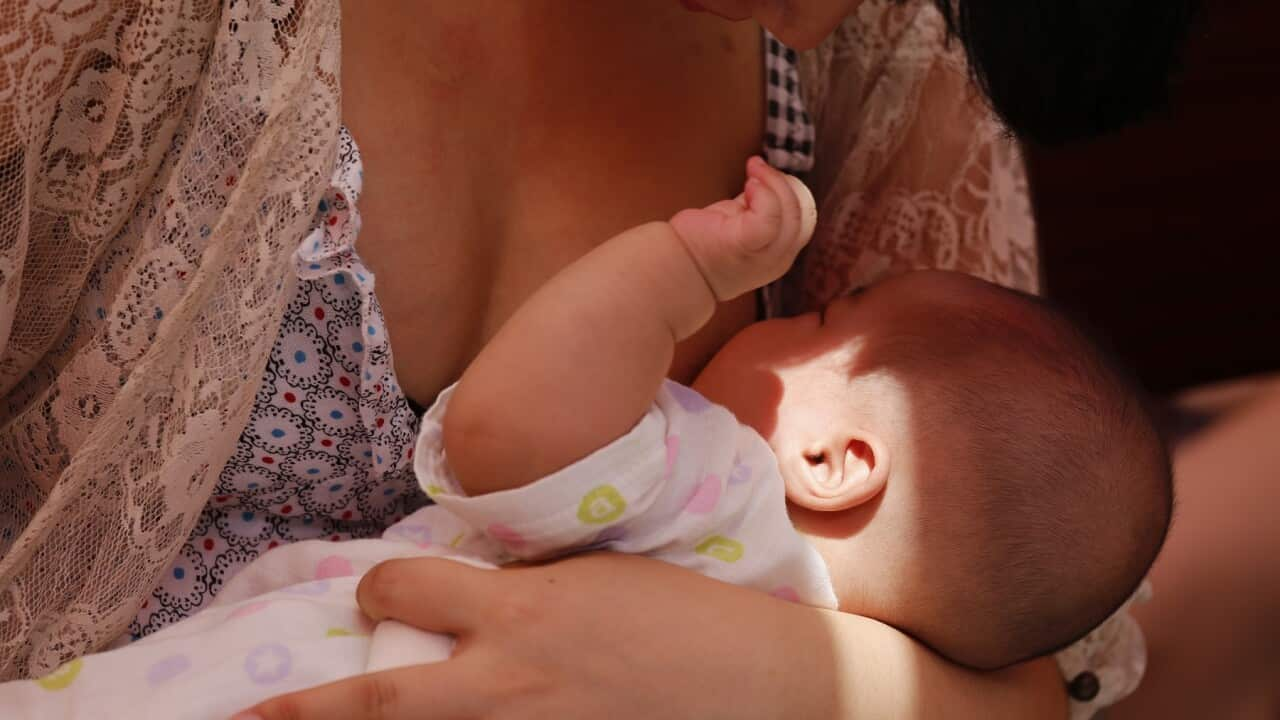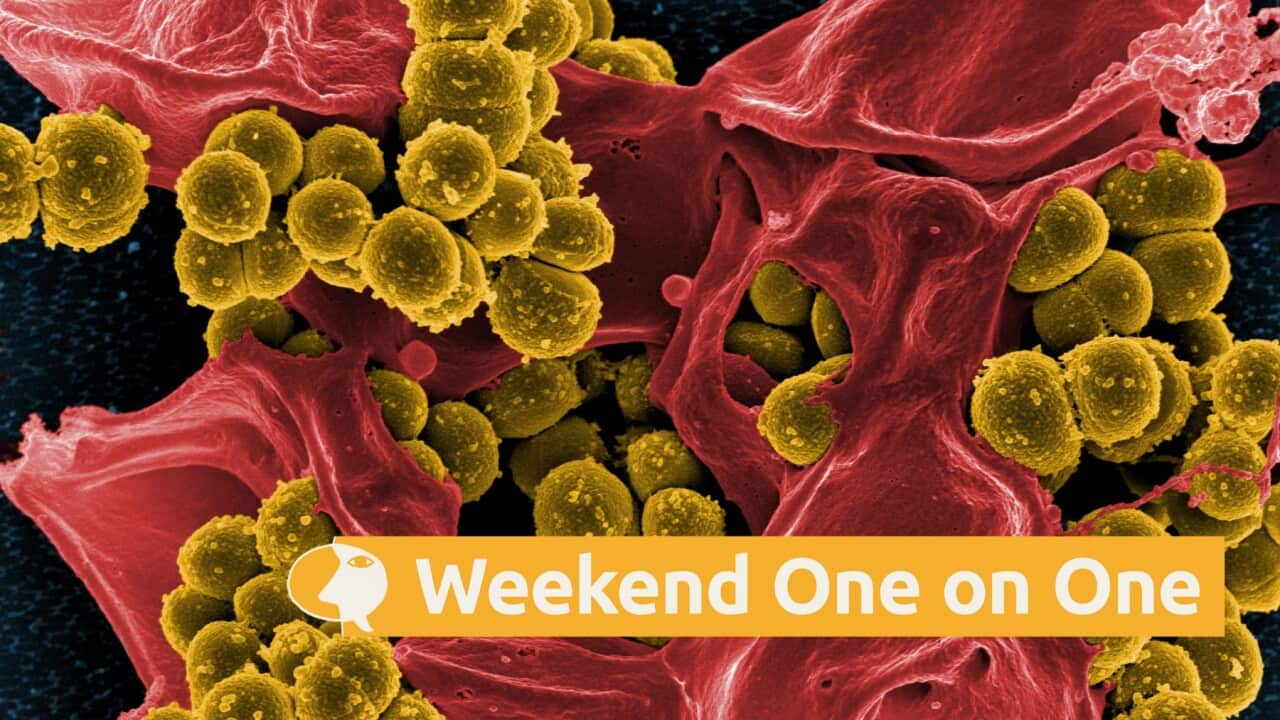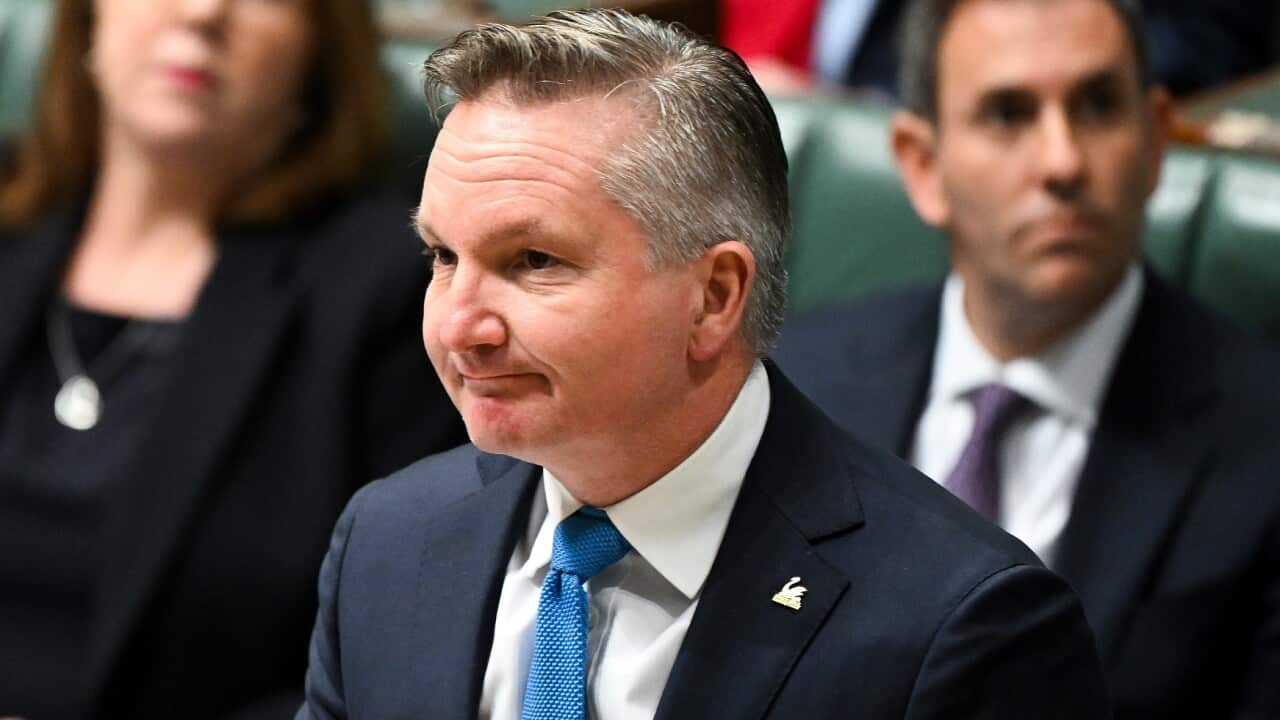Listen to Australian and world news, and follow trending topics with SBS News Podcasts.
TRANSCRIPT:
The health benefits of breastfeeding for babies has been well documented.
Now researchers from the Peter MacCallum Cancer Centre have published a study showing pregnancy and breastfeeding can also guard against breast cancer.
"The large changes that happen to the breast tissue in preparation for breastfeeding and then the resolution of that function creates a lot of stimulus for the immune cells in a way that trains them to be particularly good at patrolling and detecting cancer. A particular type of immune cell called a CDN 8 T cell - what we found was that breastfeeding is able to train those T cells to become good at patrolling the breast tissue, detecting any cells that are beginning to turn cancerous, and then eliminating them before that can happen.”
According to the research, these T cells appear to be most effective against triple negative breast cancer, which accounts for about 15 per cent of all breast cancers.
The Centre's Professor Sherene Loi says it's also the most common in women under 50.
"It unfortunately is the most aggressive breast cancer subtype, and traditionally we have treated it with chemotherapy as well as surgery. But we also do immunotherapy as part of the treatment. But this tells us that the immune system is important in triple negative breast cancer, and by manipulating the immune system or activating the patient's immune system against triple negative breast cancer, we can improve outcomes and reduce risk of recurrence.”
Mother-of-two Stephanie Davy is breastfeeding her baby.
She says it's reassuring to know breastfeeding is not only benefitting her infant.
"You're really quite focused on your baby and wanting to get it right and do whatever you can, as best you can, for your baby. But yeah, having extra health benefits for yourself, I think, is really quite special.”
It's hard to say how many other women might also be breastfeeding in Australia, because that information isn't routinely collected and monitored.
Australian Breastfeeding Association chief Victoria Marshall says the existing data indicates women need more support in establishing breastfeeding routines.
"Unfortunately we don't have great data about breastfeeding rates in Australia. The Association often refers to the 2010 National Infant Feeding survey data because that was the last robust and high quality survey that was done. We do have some data from Victoria from 2017 to 18. What we know from the National Infant Feeding survey and the Victorian data is that by the time they leave hospital those breastfeeding rates have already gone down to 70 percent, and then by six months they're at 16 to 22 percent."
The research has also raised questions about women who have never been pregnant or breastfed.
But Victoria Marshall says there's hope this research will help them too - with the findings potentially used to develop more effective prevention treatments.
"Any new research in women's health is a wonderful thing. To see research into the protective mechanisms of breastfeeding for women is really good news."













